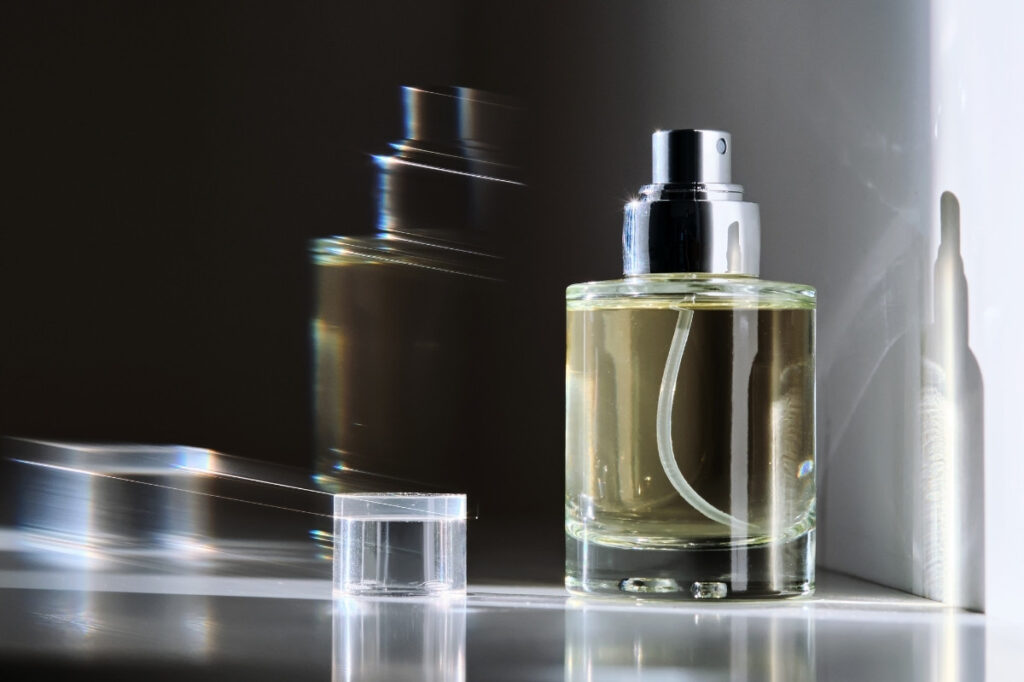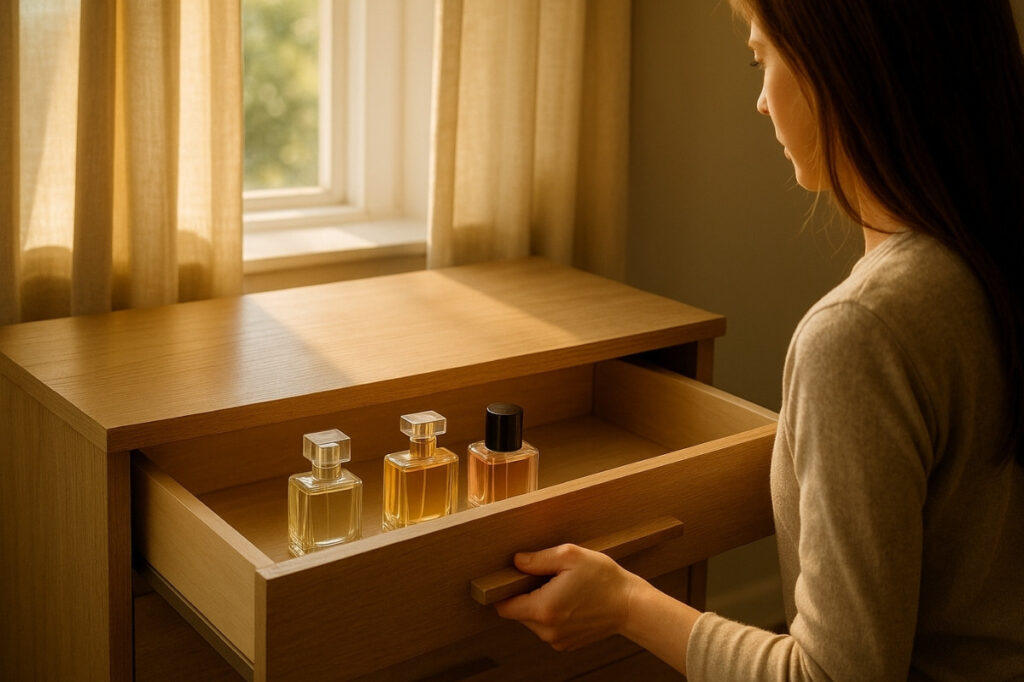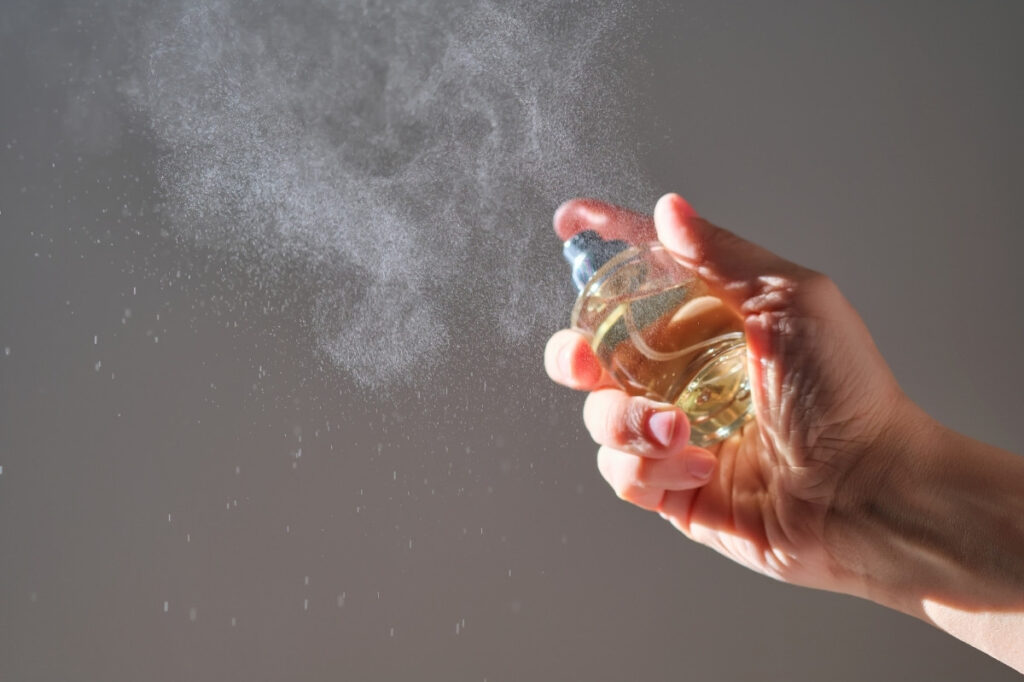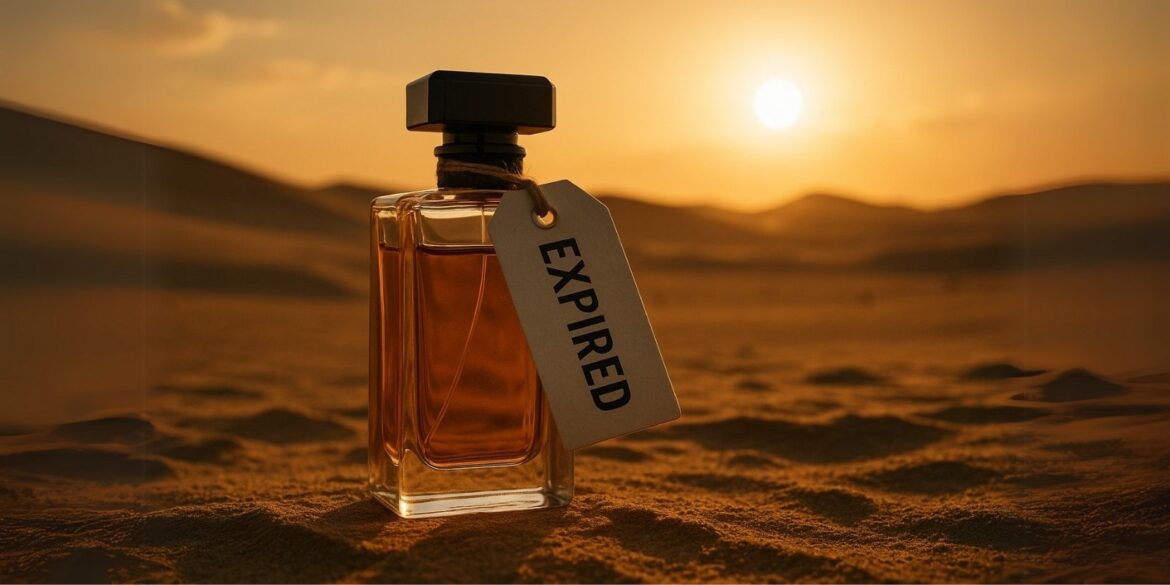The UAE is a land of luxury, perfumes, and…intense heat. Perfumes, mainly, are an essential part of life here. But with the soaring temperatures and high humidity, many residents wonder: How does the climate affect their fragrances? The answer is, technically, yes, but understanding the factors that influence your perfume’s lifespan is crucial to knowing how to preserve your fragrances longer and more effectively.
While perfume doesn’t have a strict expiration date like food, it can still degrade over time. Storage plays a significant role in determining how your fragrances age. It can age gracefully under the right conditions, or it can turn sour if not stored properly. Most perfumes have a shelf life of 3-5 years, but this can vary greatly depending on several factors.
Signs Your Perfume Has Gone Bad

So, how do you know if your beloved fragrance has turned? Here are the telltale signs:
- Change in Scent: This is the most obvious indicator. The top notes may fade, the scent may become sour, metallic, or generally unpleasant. You might notice a distinct alcohol smell becoming more prominent.
- Change in Colour: Perfume can darken or change colour over time due to oxidation. While a slight change might be normal, a significant shift, especially to a darker, murkier shade, suggests degradation.
- Change in Consistency: The perfume might become thicker, more viscous, or even develop a slightly oily texture.
- Poor Performance: You may notice that the scent doesn’t last as long on your skin as it once did. The projection (how far the scent travels) also diminishes.
- Sediment: Look closely at the bottom of the bottle. If you see particles floating or settled at the bottom, it’s a sign of breakdown.
The UAE Climate: A Challenge For Perfume Longevity
The UAE’s unique climate presents several challenges to preserving your precious perfumes. The intense heat accelerates the chemical reactions that break down fragrance molecules, ultimately leading to faster degradation of the scent.
High humidity can also affect the overall composition of the perfume, potentially altering its intended scent profile.
Finally, exposure to direct sunlight is a major concern, as UV rays can break down the chemical bonds within the fragrance, leading to its premature degradation. Therefore, protecting your perfumes from these elements is crucial in the UAE.
How To Store Perfume Properly In The UAE Heat

As previously mentioned, protecting your perfume from the harsh UAE environment is crucial for extending its lifespan. But how do you do that?
The most important thing is to store your fragrances in a cool, dark place, avoiding areas such as bathrooms, sunny windowsills, or locations near heat sources. A dark cupboard or drawer works well, and you may consider using a dedicated fragrance organiser. Always ensure the bottle is tightly sealed when not in use to prevent air from entering and oxidising the precious liquid inside. Doing that and applying your fragrance correctly will make it last all day when you wear it.
Don’t underestimate the value of original packaging; storing perfumes in their original boxes provides an extra layer of protection against both light and temperature fluctuations. Avoid shaking the bottle, as this can introduce air bubbles and accelerate the breakdown process.
As for serious fragrance collectors, a small cosmetic fridge can be a worthwhile investment, offering a consistently cool and dark environment.
Common Perfume Ingredients & Their Sensitivity To Heat
| Notes | Heat Sensitivity |
|---|---|
| Citrus Notes – Lemon, Grapefruit, Orange… | Tend to fade or turn sour quickly, especially in heat |
| Floral Notes – Rose, Jasmine, Lily… | Generally more stable, but can still be affected by extreme temperatures and light |
| Woody – Sandalwood, Cedarwood… | Often more resilient and can age well if stored properly |
| Amber Notes – Vanilla, Amber, Spices… | Often more resilient and can age well if stored properly |
| Oud | Generally considered stable and can even improve with age under the right conditions |
Note: This does not mean that notes less sensitive to heat are more suitable for wearing in summer; on the contrary, notes that react poorly to heat in the bottle often react better on the skin in the summer than those that don’t. Oud, for example, is a perfect winter note, and citruses are ideal for summer.
What To Do With Expired Perfume?

First and foremost, avoid throwing it down the drain, as expired perfume can be harmful to the environment. We need to dispose of it in a way that’s safer for our planet.
Instead of tossing it out, consider upcycling the expired perfume in creative ways. You can use it as a room freshener by lightly spraying it on fabrics (being careful not to spray directly on furniture to avoid staining), or add a few drops to potpourri to give it a revitalising boost. These are great ways to repurpose the scent without direct skin contact.
Some people even incorporate expired perfume into craft projects, such as making scented candles or soaps. However, proceed with caution if doing so, and always test the final product for skin sensitivity before using it extensively. If these options don’t appeal to you, please dispose of the expired perfume responsibly by checking with your local municipality for their specific guidelines on hazardous waste disposal. This ensures that the perfume is handled safely and doesn’t harm the environment.
While the UAE climate can be challenging for perfume preservation, you can ensure your favourite fragrances found at V Perfumes last longer with proper storage and awareness. V Perfumes understands the unique needs of the region, and with the tips we’ve shared, you can maximise the longevity of your scents.




